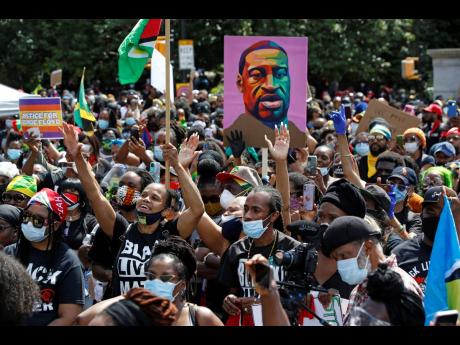A ‘Fawlty’ system - Windies legend shares views on racially controversial British sitcom episode, black civil rights
Windies fast-bowling legend Michael Holding says it was the correct decision for the British Broadcasting Corporation (BBC) to pull a racially controversial episode of ‘Fawlty Towers’ from its streaming service.
The BBC pulled the episode ‘The German’ from streaming service UKTV two weeks ago during global protests for black civil rights because of a scene that featured a man telling a story where he and a woman he admired were making a distinction between cricketers from the West Indies and India, labelling them “n****rs” and “w*gs”.
The episode originally aired in 1975 when Holding was a member of that Windies team, which had just won the ICC World Cup. He says the right thing was done because wrongs should always be corrected.
POWERLESS
“What was acceptable or passed as entertainment years ago only did so because people probably felt powerless to do anything about it,” Holding told The Gleaner.
He says that had he seen the episode when it had aired, he would have been offended, but he “puts those things down to ignorance of the times”.
The Windies teams of the ‘70s and ‘80s were not only known for their dominance on the field, but their stance on black-rights issues of the time. Many players, including Holding himself, are remembered and respected for ignoring large sums of money on offer and opting out of what was regarded as the ‘Rebel Tour’ of South Africa, which was going through apartheid at the time. The team would have been allowed to travel through that country freely and considered ‘honorary whites,’ which offended Holding and most of his teammates (some still made the trip) as they believed such a term suggests that something is wrong with being black.
Holding says that while racism is not as rife in society now as it was back then, it still exists. He referred to global Black Lives Matter protests, which have taken place since the death of George Floyd, an unarmed black man, in the custody of four policemen, one of which knelt on his neck for almost nine minutes in Minneapolis, Minnesota, on May 25.
“When I look at the problem of racism, I prefer not to relate it to cricket or any sport,” Holding said. “As far as I’m concerned, it’s all about what’s happening in the society.
“There are a lot less individuals who show racist tendencies, but because of the history of how black people were considered inferior, that racism is more institutionalised and not as overt. The evidence of both is quite evident. The protests all round the world that we’re seeing today have not just black people, but a lot of white folks who see what’s happening and feel the same way. In the early days, protests like these would be predominantly blacks with a few white faces. Thankfully, that’s not the case these days.”
Holding says racism is systematic and institutionalised, and this is why there is no fairness in how blacks are treated regarding the same issues as whites.
“The systemic and institutionalised racism is quite evident by the way blacks and whites [who are] committing the same crime or behaving the same way are treated differently,” he said. “That’s the biggest problem that has to be tackled. Until the fact is acknowledged, we won’t make any progress.”
Holding, who now works as a cricket pundit and commentator, represented the Windies from 1975 to 1987. He played 60 Test matches and 102 One-Day Internationals in that time.

